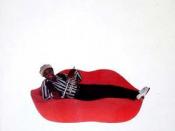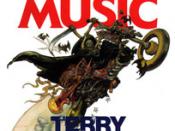In Book IV of The Republic, Socrates has gone on a bit of a digression. He has done this for the sake of proving his argument as to what constitutes the ideal city. In order to do this, Socrates feels that he and Glaucon must evaluate the individual citizen, specifically the mind and soul of the individual citizen. A city in itself is nothing more than a city, it is the individuals within it who make it just or unjust. If it can be proven that the individual is a just person and has a "well-ordered soul," than the same can be said for the city as a whole. Socrates successfully argues that the soul is made up of three parts, which are reason, appetite, and spirit. He effectively demonstrates the proper relationship that these three parts must have with one another in order for the soul to be regarded as just.
Socrates believes that the soul is comprised of three parts, but before he goes into his explanation of the these three parts, he feels it necessary to make sure that Glaucon agrees with him that the soul has more than one part. He accomplishes this by the simple view that it is impossible for something to be performing two opposite actions at the same time. "[No] same thing can be, do, or undergo opposites, at the same time, in the same respect, and in relation to the same thing." (436e-437a) Common sense would ratify this statement, but yet there are occurrences where this situation does in fact seem to be taking place. To further the argument, Socrates provides an example of a man moving his arms and head at the same time while standing still. It would be improper to state that this man was moving and...


